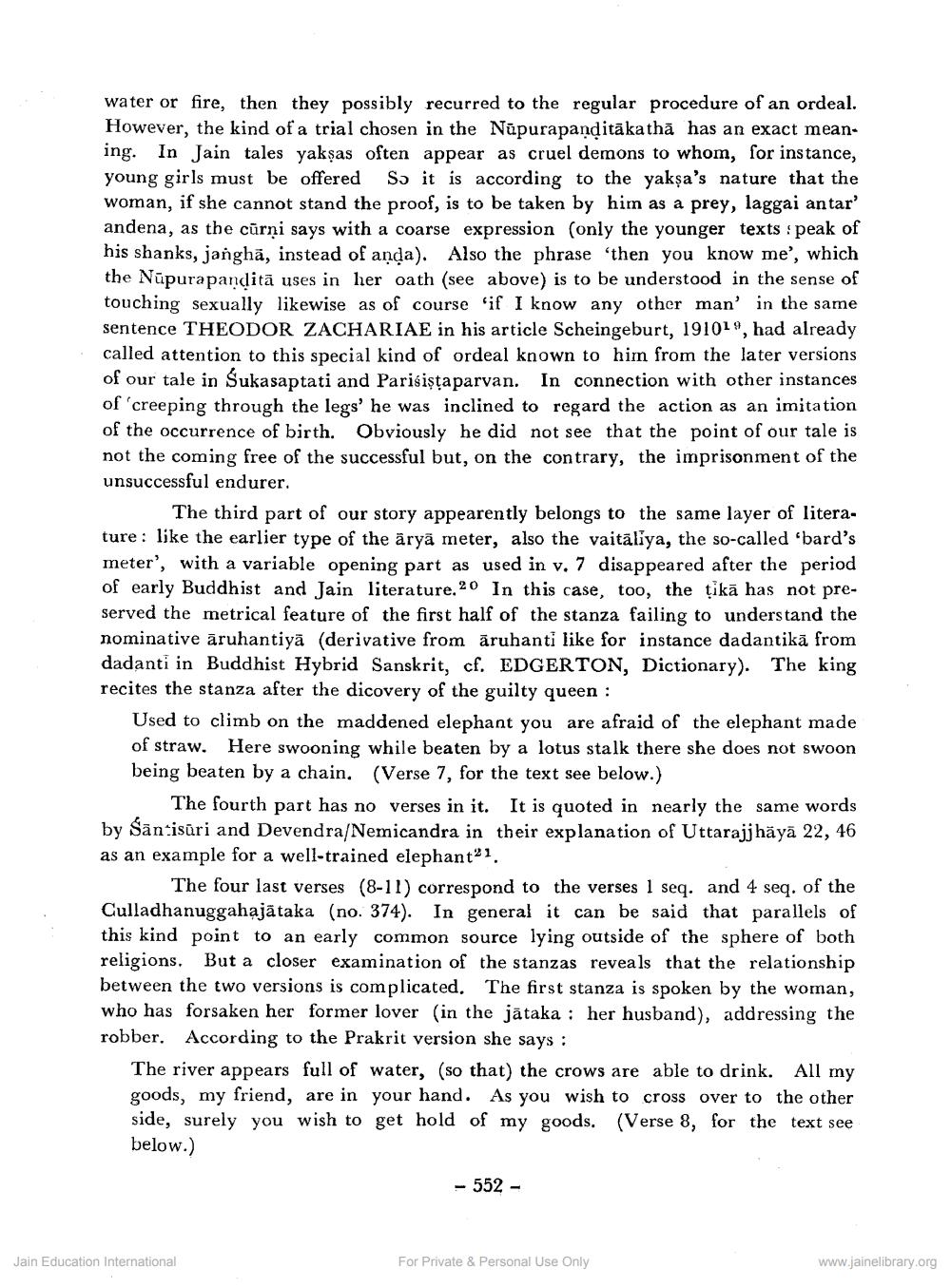Book Title: Tale of Elephant Driver in Avashyaka Version Author(s): Edhild Maite Publisher: Z_Kailashchandra_Shastri_Abhinandan_Granth_012048.pdf View full book textPage 4
________________ water or fire, then they possibly recurred to the regular procedure of an ordeal. However, the kind of a trial chosen in the Napurapanditakatha has an exact meaning. In Jain tales yakṣas often appear as cruel demons to whom, for instance, young girls must be offered So it is according to the yakşa's nature that the woman, if she cannot stand the proof, is to be taken by him as a prey, laggai antar' andena, as the curņi says with a coarse expression (only the younger texts peak of his shanks, jangha, instead of anda). Also the phrase 'then you know me", which the Nupurapandita uses in her oath (see above) is to be understood in the sense of touching sexually likewise as of course if I know any other man' in the same sentence THEODOR ZACHARIAE in his article Scheingeburt, 19101", had already called attention to this special kind of ordeal known to him from the later versions of our tale in Sukasaptati and Parisistaparvan. In connection with other instances of 'creeping through the legs' he was inclined to regard the action as an imitation of the occurrence of birth. Obviously he did not see that the point of our tale is not the coming free of the successful but, on the contrary, the imprisonment of the unsuccessful endurer. The third part of our story appearently belongs to the same layer of litera. ture: like the earlier type of the äryä meter, also the vaitaliya, the so-called 'bard's meter', with a variable opening part as used in v. 7 disappeared after the period of early Buddhist and Jain literature. 20 In this case, too, the tika has not preserved the metrical feature of the first half of the stanza failing to understand the nominative aruhantiya (derivative from aruhanti like for instance dadantika from dadanti in Buddhist Hybrid Sanskrit, cf. EDGERTON, Dictionary). The king recites the stanza after the dicovery of the guilty queen: Used to climb on the maddened elephant you are afraid of the elephant made of straw. Here swooning while beaten by a lotus stalk there she does not swoon being beaten by a chain. (Verse 7, for the text see below.) The fourth part has no verses in it. It is quoted in nearly the same words by Santisari and Devendra/Nemicandra in their explanation of Uttarajjhäyä 22, 46 as an example for a well-trained elephant21. The four last verses (8-11) correspond to the verses 1 seq. and 4 seq. of the Culladhanuggahajataka (no. 374). In general it can be said that parallels of this kind point to an early common source lying outside of the sphere of both religions. But a closer examination of the stanzas reveals that the relationship between the two versions is complicated. The first stanza is spoken by the woman, who has forsaken her former lover (in the jätaka: her husband), addressing the robber. According to the Prakrit version she says: The river appears full of water, (so that) the crows are able to drink. All my goods, my friend, are in your hand. As you wish to cross over to the other side, surely you wish to get hold of my goods. (Verse 8, for the text see below.) Jain Education International -552 For Private & Personal Use Only www.jainelibrary.orgPage Navigation
1 2 3 4 5 6 7 8 9 10 11 12
